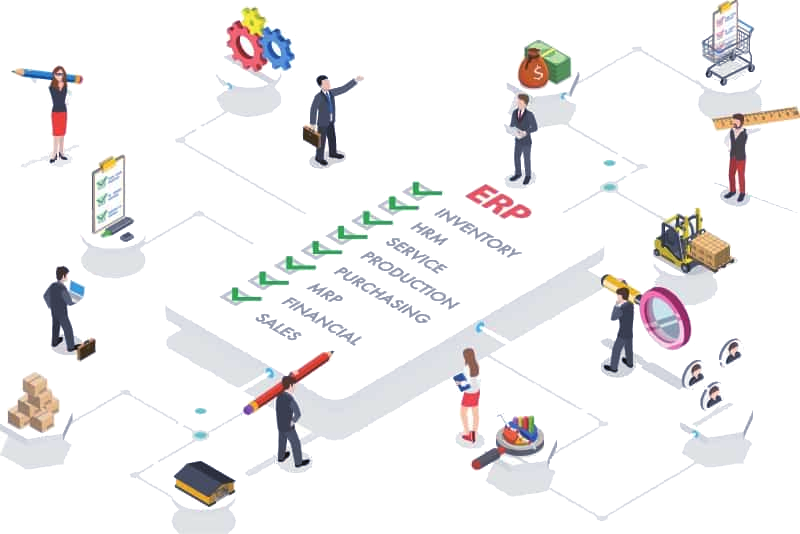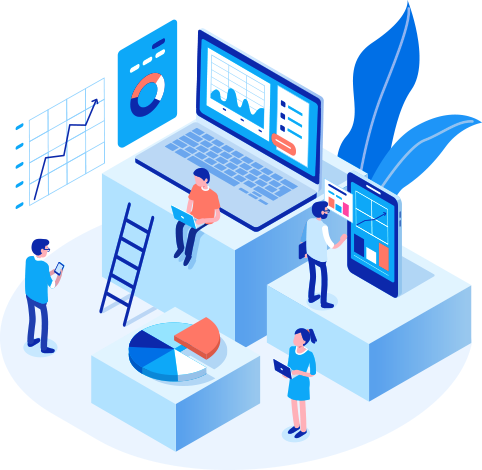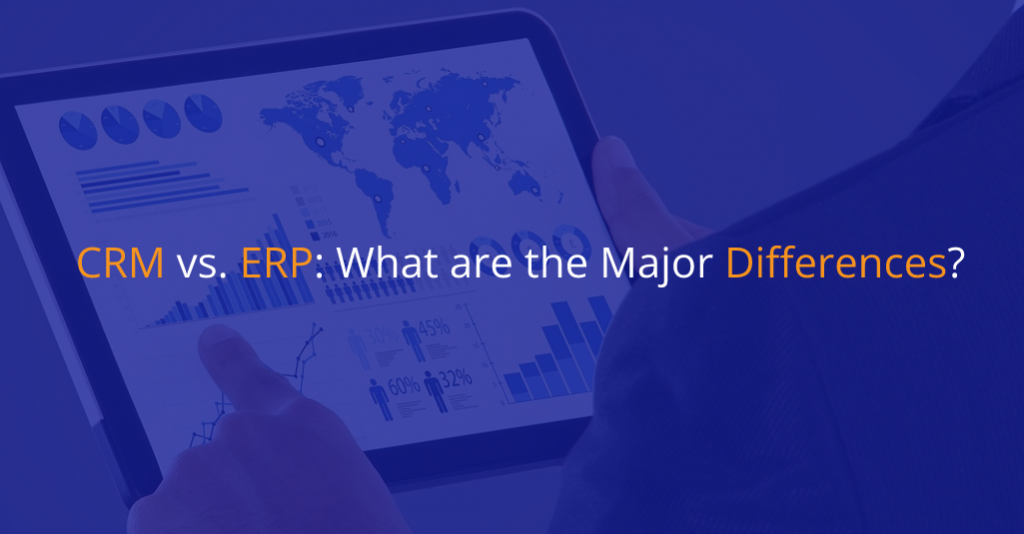Today’s digital technology provides several options to improve your company and marketing procedures.
There is a multitude of software available to assist you in streamlining company operations and increasing income. Customer relationship management (CRM) software and enterprise resource planning (ERP) software are two examples of such systems.
On this page, we’ll go through the distinctions between CRM and ERP software, as well as how they might assist your organization.
CRM vs. ERP: What is the Difference Between CRMs and ERPs?
CRMs and ERPs are useful platforms that may help you optimize your marketing operations and increase sales and income for your business. But what’s the distinction between CRMs and ERPs?
If you’re wondering about this, we’ve got you covered.
Major Differences
Here are two main differences between ERPs and CRMs:
Use
One of the most significant differences between CRMs and ERPs is how and why firms utilize them.
CRM
The major purpose of CRM software is to assist you in collecting, storing, and analyzing customer data and information, such as:
- Phone numbers
- Email addresses
- Job titles
- And more
You may keep in touch with your prospects and customize their experiences using a CRM to urge them to convert.
ERP
On the other hand, ERP software may be used to collect and organize numerous corporate data and operations, such as:
- Product inventory
- Marketing analytics
- Sales figures
- And more

ERP solutions allow you to concentrate all of your business data, including customer data, onto a single dashboard to understand how your firm is progressing toward fulfilling your business goals.
Goal
Another key difference between an ERP and a CRM is its overarching purpose and aim.
CRM
CRM solutions are primarily concerned with assisting you in closing more sales for your company. CRM software may help you acquire useful information about your present customers and prospects.
You can also follow your leads’ journey from awareness to conversion and assess the stage of the customer journey they are presently in.
As a consequence, CRMs allow you to maintain track of your existing leads and customers to develop long-term connections that increase sales and brand loyalty.
ERP

The major goal of ERP software, on the other hand, is to help you consolidate all of your business information and simplify your processes to save money and gain a greater return on investment (ROI).
ERPs allow you to automate repetitive and time-consuming operations, which frees up your to-do list and allows you to focus on other company duties. It may also assist you in storing all of your data, whether it comes from different retail locations, consumers, or the outcomes of your marketing initiatives.
As a consequence, you can simply access all of the information you need to measure the progress of your firm. This saves you time and allows you to adjust your operations in the future to get better outcomes.
CRM vs. ERP: Which is the Right Fit for Your Business?
Are you attempting to determine whether to invest in CRM or ERP software and are unsure which is ideal for your company? We’ve got your back.
Let’s look at when you might want to invest in CRM and ERP software for your business below:
CRM
If you do the following, investing in CRM software will benefit your company:
- Have a big volume of customer data that is difficult to manage.
- Want to analyze your customer data to better understand your customer's journey from awareness to conversion
- Want to improve your sales procedures and efficiency to increase conversions and revenue
- Investing in a CRM platform is a great way to improve your sales operations and encourage more prospects to become loyal clients and customers.
ERP
If you wish to, your company can profit from investing in an ERP platform:
- Collect and analyze company data from many locations and retailers.
- Gather a range of data in one location, such as marketing statistics, sales records, and more.
- Centralize data from several departments, such as your sales and marketing teams.
- Automate routine company processes such as order processing, budget management, and others.

- Investing in an ERP package is a good solution for your company if you want to streamline your business operations to boost overall efficiency and income.
The Bottom Line
Whether you choose to invest in an ERP or CRM software, both provide major benefits that will help your organization generate more money.
By investing in both platforms, you can combine your sales and entire business processes into a streamlined, revenue-generating process.
To drive more sales, your CRM software may assist you in maintaining strong ties with your prospects.
Furthermore, your ERP application allows you to examine your business data and marketing outcomes to optimize your tactics and user experiences to gain a greater ROI and develop your business.
So, if you want to optimize your income and ROI while propelling your company forward, investing in both an ERP and CRM platform is the way to go.
Get the Most Out of Your CRM and ERP Software With iStudio Technologies
Whether you’re already utilizing CRM or ERP software to optimize your marketing operations, iStudio Technologies can help you enhance your digital marketing results and propel your business to new heights.
The industry-leading CRM software, allows you to simply keep track of your customer information to develop long-lasting connections that lead to brand loyalty.
Furthermore, our highly experienced digital marketing specialists understand how to make the most of your CRM and ERP software to help your business develop.



